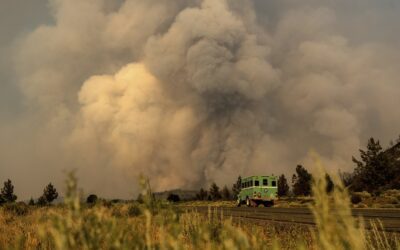by Michael T. Klare in The Nation….Will our own elites perform any better than the rulers of Chaco Canyon, the Mayan heartland, and Viking Greenland?
How Musk, Thiel, Zuckerberg, and Andreessen—four billionaire techno-oligarchs—are creating an alternate, autocratic reality
by Jonathan Taplin in Vanity Fair…..In an excerpt from his new book, The End of Reality, the author warns about the curses of AI and transhumanism, presenting the moral case against superintelligence.
Yep, it’s bleak, says expert who tested 1970s end-of-the-world prediction
by Gaya Herrington in The Guardian…A controversial MIT study from 1972 forecast the collapse of civilization – and Gaya Herrington is here to deliver the bad news
Trevor Hancock: A polycrisis is greater than the sum of its parts
by Trevor Hancock in Times Colonist…..Today’s crises, they wrote, “simultaneously span natural, political, economic and technological systems, because they’re driven by a multiplicity of underlying ‘systemic risks.’ ”
How to resist cultic thinking in the end times
by Richard Heinberg in Common Dreams……People who are aware of society’s blind spots are often attracted to would-be cult leaders, because the former need a new worldview to replace the flawed one they are reacting against, and the latter fill that need.
Global heating likely to hit world food supply before 1.5C, says UN expert
by Fiona Harvey in The Guardian….“Climate change is a pandemic that we need to fight quickly. See how fast the degradation of the climate is going – I think it’s going even faster than we predicted.”
Atlantic collapse: Q&A with scientists behind controversial study predicting a colder Europe
by Peter Ditlevsen in The Conversation…..But what we see now with more and more frequent extremes, heat waves and storms and floodings, is the possibility of actually hitting a nonlinearity, a tipping point. That’s a much more challenging phenomenon to model.
From debt to diversity: A journey of rewilding, carbon capture and hope
by Elizabeth Fitt in Mongabay….A study also shows that the rewilded farmland at Knepp absorbs more carbon dioxide than conventional farms, providing hope for climate change mitigation and soil restoration.
Trevor Hancock: A polycrisis is greater than the sum of its parts
by Trevor Hancock in the Times Colonist…The polycrisis, according to the UN and Cascade Institute, includes the climate crisis, war, extreme economic inequality, financial system instability, ideological extremism, pernicious social impacts of digitalization, cyber attacks, mounting social and political unrest, large-scale forced migrations and an escalating danger of nuclear war,
Instead of moving to escape climate chaos, build social trust where you are
by Bill McKibben in Common Dreams….And I think it’s on a lot of minds, especially right now, as it becomes clear that many parts of our Earth won’t be habitable going forward.





